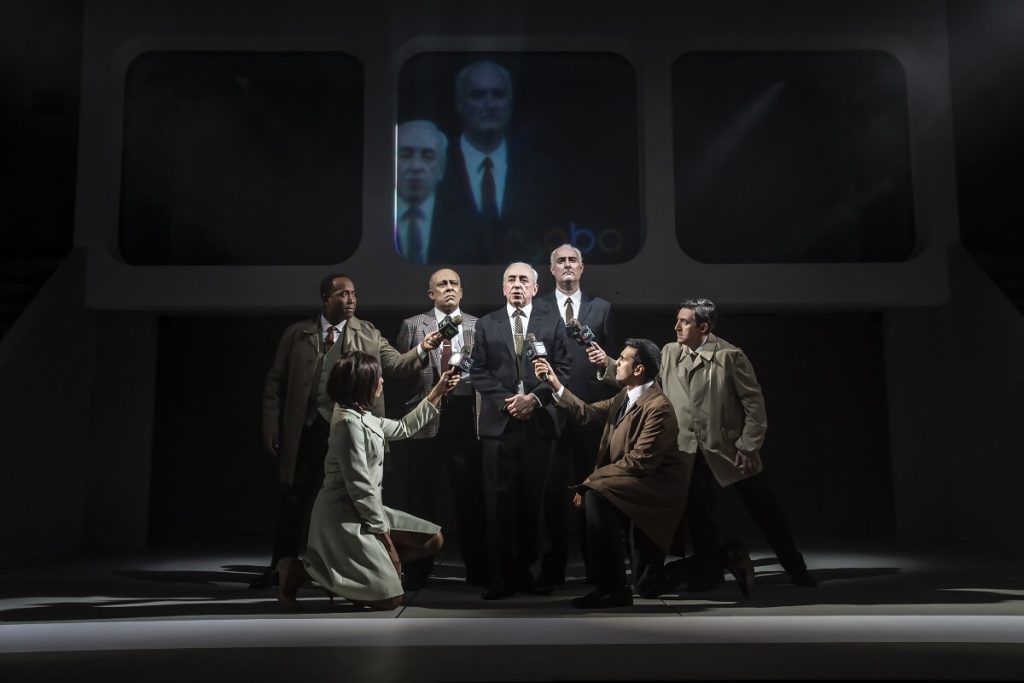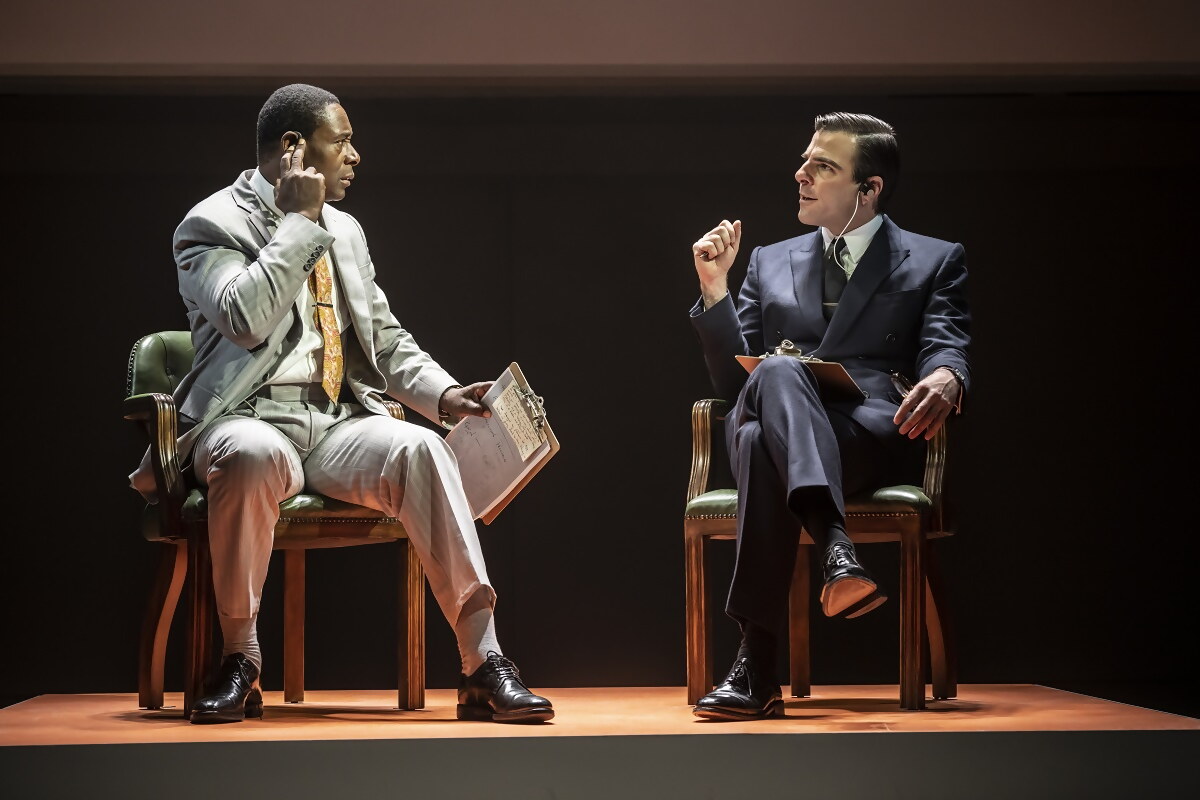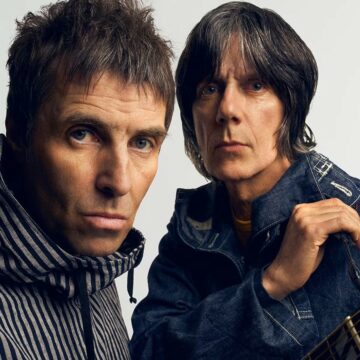★★★★☆
The 1968 Democratic Convention has attracted an unusual amount of interest recently. With Aaron Sorkin’s (who also has a zeitgeisty show on at the West End, in To Kill a Mockingbird) 2020 Oscar nominee Trial of the Chicago Seven, we saw the events of that summer on the streets and in the courtroom, as protestors cried “the whole world is watching.” With James Graham’s adaptation of the 2015 documentary of the same name, the story isn’t what the world is watching, but who points the camera, as it charts the TV debates between William F. Buckley (David Harewood) and Gore Vidal (Zachary Quinto) which changed the format of American news forever.
When Harewood’s Buckley takes out a can of deodorant, the cheap scent wafting over the audience isn’t the subtlest metaphor for the audience’s involvement in the unfolding story. But throughout Best of Enemies, it’s impossible to shake the feeling that we’re a part of this tale. The parallels are so confidently drawn that watching the characters build a new form of media can’t help but instil a rising sense of panic. Graham and director Jeremy Herrin have captured the putrefaction of democracy in real-time. But with a sly sense of humour and wickedly sharp script, Best of Enemies is never anything short of intensely enjoyable despite the tough subject matter.

Best of Enemies at Noel Coward Theatre (c) Johan Persson
That’s in no small part down to the leads. David Harewood reprises his role from the play’s run at the Old Vic, bringing charm and gravitas to a role which lesser scripts could easily turn into a caricature. But Zachary Quinto remains this run’s big draw, and for good reason; his Vidal turns waspishness into an art form, but behind the mischievous exterior lies a man increasingly horrified by the poisoned media he helped create. The supporting cast, too, is quietly brilliant, with Syrus Lowe a real standout with his uncanny James Baldwin (among other roles I won’t spoil). However, Deborah Alli and Kevin McMonagle are equally magnetic.
The story, in amongst the politicking and media-wrangling, helps chart the rise of colour TV, and Herrin does a remarkable job of placing the camera front and centre in his staging. Huge screens capture the actors’ faces during the televised debates and display archive footage from the era outside of them. If there’s a villain in Best of Enemies (and it’s political neutrality is another remarkable victory of Graham’s writing), then it’s surely this, and the play captures the oppressive force of the medium in genuinely terrifying fashion. The blistering speed of the thing only adds to the inevitability of the crisis as we watch it unfold, like a car crash not so much in slow motion as one telegraphed weeks in advance.
Best of Enemies is a play which grasps the present with both hands and refuses to let go. Perhaps some of the parallels are over-emphasised at times, and a drastic presentational change at its conclusion threatens to present its themes a little too obliquely. But then again, it’s a comparison that is hard not to make. Maybe our current obsession with the whole period is onto something. When Best of Enemies holds up its mirror to the modern age, it’s impossible to look away.
Best of Enemies plays at the Noël Coward Theatre for a strictly limited season until 18 February 2023. Tickets are available here.





